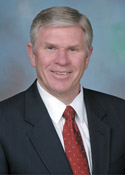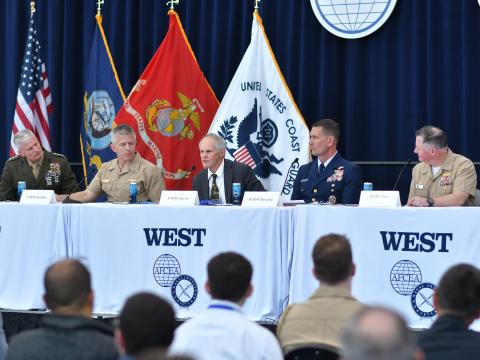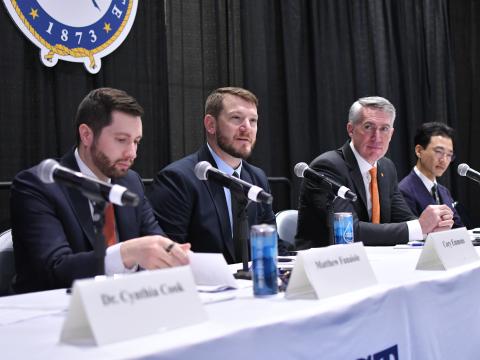Change Is a Requisite for the Future of Network-Centric Operations
 |
I have been privileged to serve with the Network Centric Operations Industry Consortium (NCOIC) and to work on developing a future strategy for network-centric operations (NCO). Over the past year, we have considered the future of NCO and how business models and work environments should evolve. It is clear to me that interoperability among diverse organizations is unachievable without significant changes.
Continuous improvement in cybersecurity, situational awareness, decision making and response to events across all organizational venues is a national imperative and is being driven by speed. Technology is evolving at a rate that continues to leave behind those who lack the agility to accommodate its accelerating rate of change. Achieving this agility requires institutionalizing a culture of risk taking and risk management, along with streamlined acquisition processes.
The single enterprise concept or vertically oriented approach is not the answer. Power lies in shaping and advancing information and knowledge sharing as a global capability across all operational entities. This will create a competitive advantage that denies opportunities to adversaries and is capable of responding to their actions with speed, precision and measured effect. The resultant global adaptive network of networks eventually will challenge, if not render obsolete, present views on bandwidth limitations, information assurance, reliability and connectivity.
A concerted effort by government and industry working together is crucial to shaping, guiding and exploiting the NCO-adaptive network as it evolves into a true ecosystem. Information technology developments fundamentally are products of industry, and even government operational requirements are increasingly described in terms of commercial products and services.
Various industry associations are seeking ways to harness the potential of emerging Internet-based Web services and social networking media. These services were developed by and for consumers and are being adapted quickly for business use. They create numerous islands of network capability that have already begun to merge and form a highly adaptive global network of networks. The eventual emergence of a complex adaptive fabric of modern networks that overshadows fixed and mobile infrastructures and their services is inevitable. Great value can be derived from managing risks and leveraging the patterns produced to the advantage of all domains.
Few doubt the importance of forging new relationships between government and industry to leverage the power of information technology. The successful incorporation of a voluntary global consortium of companies whose principal objective is to improve interoperability is evidence of an opportunity to achieve that objective. The NCOIC is forging a global net-centric fabric to hasten the trek toward quickly employing emerging information technology capability and advancing global interoperability across multiple and disparate domains.
To date, the need for cultural change has exceeded the flexibility of traditional organizations. Moreover, federal acquisition principles, processes and practices have become obsolete and cumbersome as the rate of technology advancement accelerates. In short, the federal government has yet to adapt to this new world—a world of technical and cultural change that advances at a rate inconceivable even 10 years ago.
What is required is a structure based on an ecosystem—a nodal environment where each node contributes to the system in a measured and consistent manner. In this environment, each node, or “cell,” is a packet router in a data stream capable of generating, passing or receiving data packets according to a specified and orderly formula, much like the cells of a biological system. The nodes can operate independently insofar as local interchanges are concerned, but they must adhere to more regional and/or global rules when seeking to pass packets outside their local domain.
The global network of networks must defend against attempts to disrupt its structure or violate its local, regional or system rule sets in any way. That defense, as with the antibody mechanism in biological systems, must be operative at every level of the ecosystem—every node, every collection of nodes and systemwide—as appropriate to the severity of the threat or attack.
An interoperating, global net-centric information core system is vital to the government, which is hamstrung by today’s system- and organization-centric information hodgepodge. The overhead of translation among stovepiped systems and data formats adds unacceptable cost, time and inefficiencies that compromise effective operation. Technology advances have laid the foundation on which an interoperative, net-centric core can be built. Industry has shown itself willing and ready to partner in setting standards, prototyping and developing a common information core through industrywide groups such as the NCOIC.
There will be many concerns about information assurance, privacy and intellectual property protection raised by this development. However, these concerns can be mitigated as the core develops. It is both reasonable and essential to create an environment where every network user can obtain information when needed through heterogeneous, integrated network and information cores. And, it is essential that these cores be trusted, secure, robust and ubiquitous for the future of network-centric operations.
Lt. Gen. Harry D. Raduege Jr., USAF (Ret.), is chairman of the




Comments